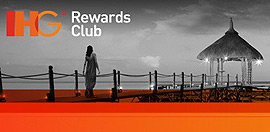
Loyalty programs used to pretty much be CRM in a box: A mail pouch and an address list and a post office.
Nowadays, it’s pretty much
pure digital: Cookies, emails, real-time, location, social media. And it involves a lot more data and therefore a lot more targeted offers. Yes, Big Data has given companies the tools to offer loyal
customers real-time, location-based incentives and offers in exchange for...oops, where did my privacy go?
Marketing consultancy Maritz Loyalty Marketing, which has been doing studies on
loyalty programs in Canada and elsewhere, has just done its first overview for the U.S.
The 2013 Loyalty Report, based on a survey of some 6,000 consumers looks at such consumer attitudes
about loyalty programs as frustration over the slow integration of digital, personalization, relevance, timing, frequency -- and of course, privacy concerns. Key markets highlighted in the report
include airlines, retail, hospitality, entertainment, grocery and banking.
Scott Robinson, who directs the loyalty consulting business at Maritz, reviews some of the top-level findings with
Marketing Daily. On average, for example, Americans are signed up for a little over seven loyalty programs, he notes. The U.S., he says, is actually second to Canada in the number of consumers in such
programs.
Almost three-quarters of smartphone/tablet users prefer mobile devices to interact with such programs, and 71% are interested in joining more programs.
The study also
promulgates a list of the companies with the most satisfied loyalty customers in five categories covered.
In financial services, 84% of Chase Ultimate Rewards members said they were satisfied.
In the entertainment sector, 79% of Carmike Cinemas Rewards members were satisfied. Seventy-three percent of Kohl's Rewards members were satisfied, giving it top scores in retail. IHG Priority Club
Rewards was top in hospitality, Kroger Rewards led in the grocery segment, and Southwest Airlines led travel.
Robinson says 65% of program members are satisfied with their loyalty program, and
24% of Americans have a specific privacy concern.
Bob Macdonald, president and CEO of Maritz Loyalty Marketing, says such technology-driven changes in commerce as the mobile wallet have made
personal data a major friction point between relevance and privacy.
"One of the things we want to uncover is the extent to which program participants are comfortable with companies using
[that] data," Macdonald says.
In the study, 69% of program participants said getting personalized messages would be great.
"The other side of that is the 31% who say it's not cool and
exciting," says Macdonald, adding that younger people have a more favorable opinion of the privacy versus relevance barter. "Ninety-four percent of respondents want communication from brands they use,
but only half say it’s relevant."
Macdonald says the takeaway for marketers is "Be very transparent on how you plan to use information. Always give them an opportunity to opt in."